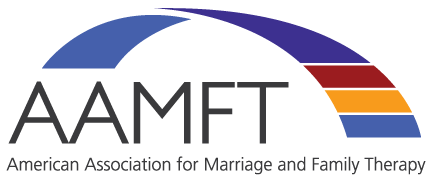Our family affects who we are and who we become. Inherently, we learn our vocabulary, our habits, customs and rituals, and how to view and relate to the world from our kin. The beliefs of each family member are woven into the character of all, making your family distinguishable from others in the world, and inseparable from one another.
This is why, when disagreements erupt with family members, and discord or distance is experienced, it can have a huge impact on your well-being.
As you likely have seen or experienced in your own family, when one person is hurting (though this may be displayed as anger or via ‘the silent treatment’), the rest of the family members are likely suffering, too (because it is very hard not to be affected by the moods of others, especially when we live with those moody individuals). For parents, a change in the wellness of the family is typically first noticed in their child(ren). Parents may observe grades starting to slip, their child speaking or acting disrespectfully, defiantly, or disobediently, beginning to engage in other self-destructive behaviors (like experimenting with drugs or alcohol, cutting, or unhealthy eating), or becoming uncharacteristically temperamental, aggressive, depressed, or distant. As a result, your child may have been diagnosed with a depressive disorder, anxiety, ADHD, or a conduct or impulse disorder.
But why is this happening?
Often, the children become the “symptom bearers” for the family, which means that they can sense that something is amiss within the household, and are reacting to the family’s stressors in ways that alert and alarm not only the parents, but also the people within the community (you may have received a concerned call from the school or other parents). This can lead to frequent frustration and fighting, and/or ongoing and sometimes unspoken tension arising, which invades and damages the relationship between not just the parents and child, but all of the family members, as everyone, to varying degrees, eventually feels emotionally exhausted, helpless, and hurt.
Also, every family has a predictable, and sometimes unhealthy, way of interacting with one another. Families trapped in a cycle of unhappiness are often most sensitive to the hurtful behaviors and biting words of one another, as this is what families focus on when attachments feel frayed because those are the only ‘clues’ being communicated. Families do not tend to discuss the disconnection felt, and the anger or sadness associated with it, though it is present in every interaction. When relationships are suffering, either from a small, one-time act, or years of heartache, everyone hurts. The distress does not end until therapy begins.
Are you ready for a healthier, closer family relationship?
We will aid your family in discovering and understanding the pattern of unhappiness, then teach, and help you practice, new methods of relating to one another. This will strengthen the bonds between family members and the connection amongst the whole family unit.
Family therapy is commonly sought for, and especially helpful in treating:
- Divorce
- Parent-Child Conflict
- Problems Between Siblings
- Illness of a Child or Parent
- Trauma
- Dangerous Behaviors of a Child
- Loss of a Family Member
Some positive family therapy outcomes are:
- Enhanced Connection and Ability to Influence Each Other
- Strategies to Develop and Maintain Boundaries
- Fostered Sense of Cohesion and Communication amongst Family Members
- Promotes Problem Solving Through Understanding of Family Patterns and Dynamics
- Builds Empathy and Compassion
- Reduces Family Conflict
Studies show that family therapy is particularly important for families with members who are struggling with substance abuse, behavioral issues, and divorce.
Elon specializes in counseling families who are either on the brink of divorce or who are currently separated. If this describes your family, please call. We know that when divorce is nearing, each parent is suffering from the loss of a life built together, and is fearful of how this will affect the rest of the family. As parents, Mom and Dad, you’re probably worried about how your children will respond, and how this might alter their lives and relationships as they grow. We know how to help your family navigate these troubled waters.


